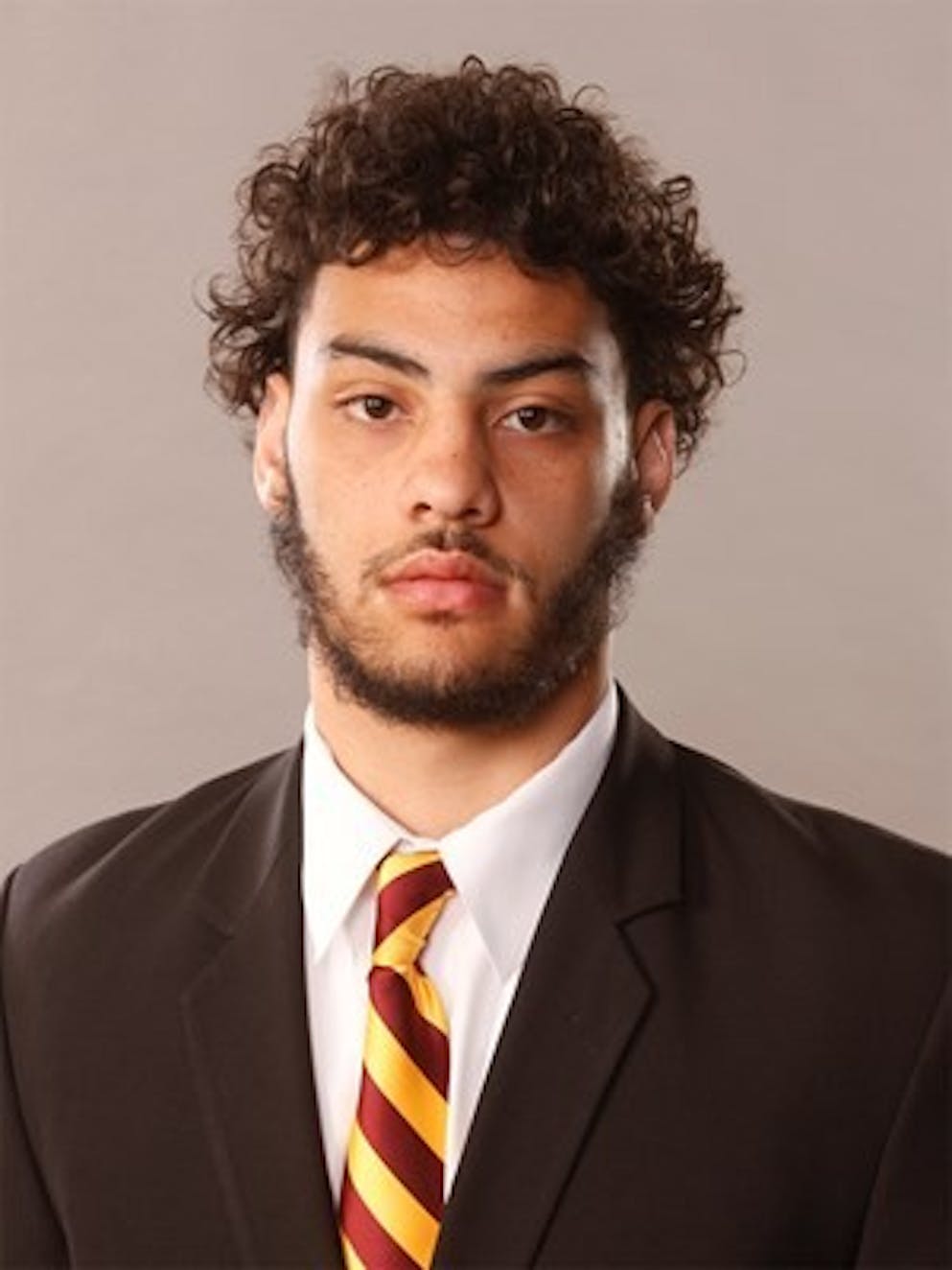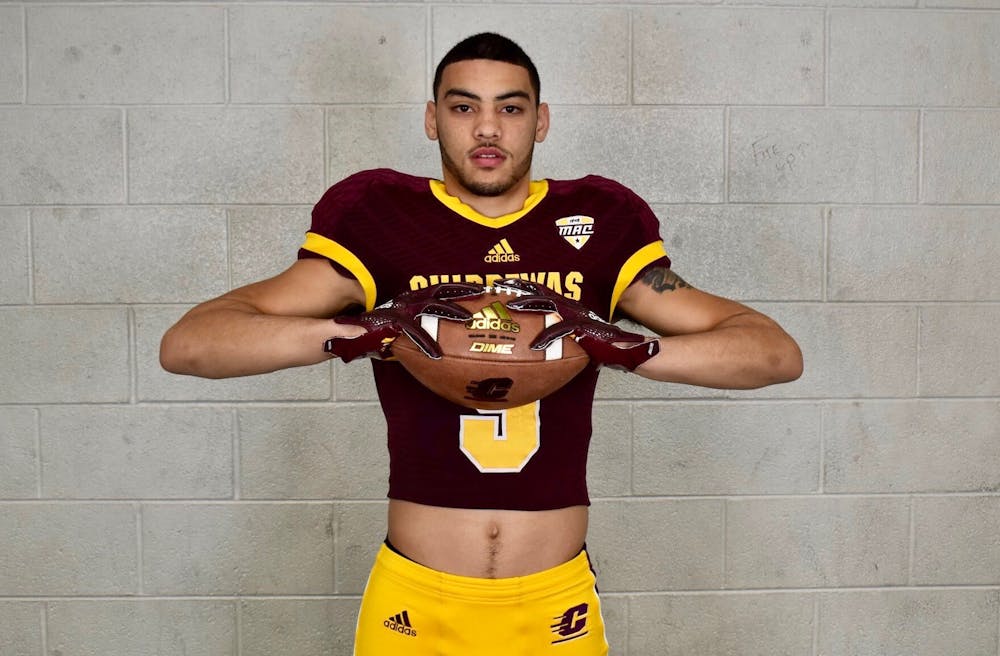Despite NCAA rules, true freshman ‘academic redshirt’ Ormondell Dingle can’t practice
True freshman safety Ormondell Dingle hasn't participated in any Central Michigan football practices this season.
Every so often, he shows up toward the end in street clothes.
Dingle isn't allowed to practice or play with the Chippewas in the 2019 season, but first-year coach Jim McElwain said eligibility isn't the problem.
"He's just not able to play this season, so we chose to work on academics," McElwain said.
McElwain said Dingle is not ineligible – only unable to participate.
"He's basically, um, what would be called an academic redshirt situation," McElwain said. "He's getting some things handled in the classroom and has been working his tail off."
According to the NCAA, a player on an academic redshirt is able to practice – just not compete in games – during the first semester of college while receiving an athletic scholarship for the entire year.
Yet, for some reason, Dingle can't even practice. And if he is actually allowed, as the NCAA states for a player on an academic redshirt, then he's chosen not to show up.
Players on an academic redshirt can practice, as can ineligible players enrolled as full-time students working toward their degree and suspended players.
McElwain added Dingle will be able to return to practice in the spring.
"We're excited to get him back out in the spring," McElwain said.

Ormondell Dingle (Photo: CMU Athletics)
Since Dingle did not take any classes prior to enrolling at the university in August, the reason for him being unable to practice could have dated back to his junior or senior year at Cass Technical High School in Detroit.
Division I eligibility requirements include graduating high school, earning a core course GPA of 2.3 or higher, completing 16 core courses (10 must be completed by the end of junior year), earning an SAT combined score matching core-course GPA on the Division I sliding scale and receiving final certification on amateurism status from the NCAA Eligibility Center.
If an incoming Division I athlete would've accumulated a 2.3 GPA, he or she would've had to score a 980 on the SAT. If a sufficient gap exists between the scores, the Eligibility Center can send an inquiry to the testing agency.
Again, the NCAA clearly states: "If you qualify as an academic redshirt you may practice during your first term in college."
Even if Dingle did not meet all the Division I academic requirements, McElwain still claimed him as an academic redshirt, so he should be able to practice.
McElwain did not explain any further details regarding Dingle's inability to practice.
Due to the Family Educational Rights and Privacy Act (FERPA), more information on Dingle's academic situation will likely never be made known.
Nevertheless, McElwain said there is a "really bright future" for Dingle on the football field.
The defensive back came in at 6-foot-3, 205 pounds, but he's since gained 14 pounds. McElwain said he will likely move to linebacker, resembling current linebacker Troy Brown's situation.
"He told me today that he's up to 219 pounds and had a big smile on his face," McElwain said. "I'm thinking we'll move him down like we did Troy.
"Don't tell him that. We've talked about it."
Dingle earned All-Detroit honors from The Detroit News as a senior and finished his varsity career with 49 tackles, three interceptions (one returned for touchdown) and six passes defended. He also caught 13 passes for three touchdowns.
He was listed as a three-star prospect by 247Sports with offers from Central Michigan, Buffalo, Chattanooga, Iowa State, Northern Illinois, Pittsburgh, Syracuse, Temple, Toledo and Washington State.







